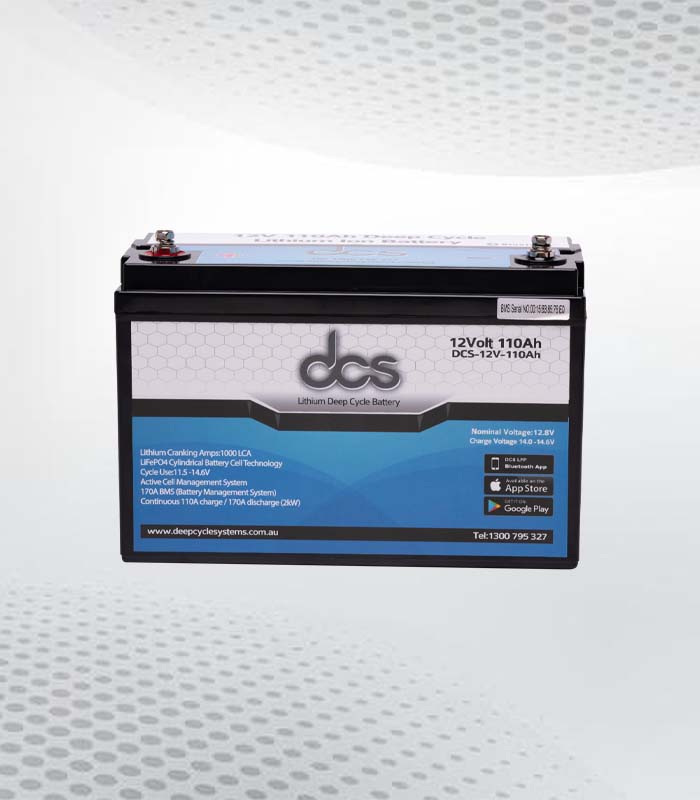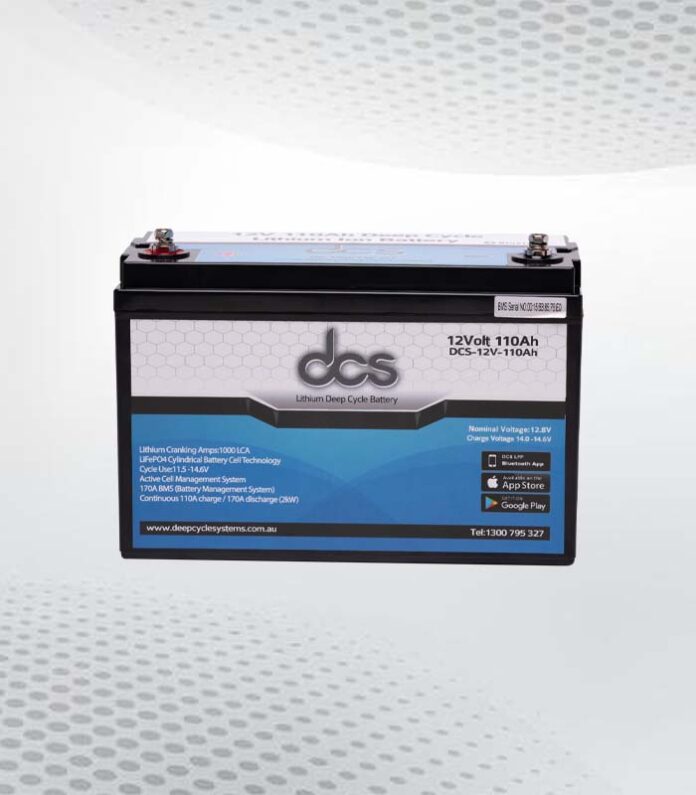Lithium deep-cycle batteries emerge as a forefront technology for solar, marine, and RV applications in a world increasingly leaning towards sustainable and efficient energy solutions. Renowned for their reliability, long life span, and efficiency, these batteries represent a significant upgrade over traditional lead-acid batteries. This guide is dedicated to exploring the benefits of lithium deep cycle battery across various applications, providing you with all the knowledge you need to make an informed decision.
Understanding Lithium Deep-Cycle Batteries
Lithium deep-cycle batteries are distinguished by their superior chemistry and design, which provide several key benefits over conventional battery types. These batteries boast a high energy density, allowing them to store more power in a smaller space—an essential feature for applications where compactness and efficiency are vital.
Their standout characteristic is the ability to undergo deep discharge cycles without significantly impacting their lifespan. In stark contrast to lead-acid batteries, which experience a decrease in lifespan when discharged beyond 50%, lithium batteries can repeatedly sustain discharge levels of up to 80-100%. This capability ensures they can deliver consistent power even under demanding conditions, making them an optimal choice for heavy-duty applications.
Additionally, lithium batteries exhibit a lower rate of self-discharge compared to their lead-acid counterparts. This means they can retain their charge for longer periods when not in use, reducing the need for frequent recharges and extending their operational life. Their performance is improved by varied discharge and recharge cycles, ensuring a reliable power source across various applications. This resilience and efficiency underscore why lithium deep-cycle batteries are increasingly preferred for demanding energy storage needs.
Why Choose Lithium for Solar Applications?
Lithium batteries offer unparalleled advantages in the realm of solar power, where the efficient storage and utilization of energy are critical. Their ability to undergo deep discharge cycles without significant degradation allows for more effective use of the solar energy captured during peak sunlight hours. This is crucial for maintaining a consistent power supply, especially during periods of low sunlight or at night.
Lithium batteries also shine in their high charge efficiency, ensuring minimal energy loss during storage. This aspect is particularly beneficial in solar applications, where maximizing the use of available solar energy is key to a system’s effectiveness and sustainability. Lithium batteries’ superior energy density means they can store more energy in a smaller footprint, a significant advantage for solar installations where space may be limited.
Their lower self-discharge rate further enhances their suitability for solar applications, ensuring that the stored energy remains available for longer periods without frequent recharges. These attributes collectively make lithium batteries an excellent match for solar systems, enabling users to achieve higher energy independence and reliability.
Powering Your Marine Adventures with Deep Cycle Battery Lithium
For marine enthusiasts, lithium deep-cycle batteries offer a sea of benefits that can transform your aquatic adventures. Their unparalleled energy density and efficiency mean you can enjoy longer periods out on the water without worrying about your power source. These batteries’ ability to sustain deep discharge cycles is particularly beneficial in marine settings, where power demands can vary. Whether you’re navigating the open ocean or moored in a tranquil bay, the reliable power output ensures that critical navigation systems, communication equipment, and onboard amenities continue functioning optimally.
Additionally, lithium batteries are notably resilient to the harsh marine environment. Their robust design and lack of maintenance requirements make them ideal for use in wet conditions, offering peace of mind to sailors and boaters. The rapid charging capability of lithium batteries is another crucial advantage, allowing for quick energy replenishment when docking for short periods or utilizing solar panels on sunny days. This aspect is particularly advantageous for those looking to maximize their time exploring marine landscapes.
Their lightweight nature also significantly enhances boat performance and fuel efficiency, a key consideration for any marine application. By choosing deep cycle battery lithium for your boat or yacht, you’re investing in a power solution that meets and exceeds the demands of marine adventures, ensuring a seamless and enjoyable experience on the water.
Enhancing Your RV Experience with Lithium Power
For those who revel in the RV lifestyle, transitioning to lithium batteries marks a game-changer in how they experience the open road. The shift to lithium means a leap in battery longevity andand the quality of off-grid life. Lithium’s superior power consistency allows adventurers to venture further into the unknown, assured by the reliability of their energy source for extended periods. This reliability directly translates into more freedom and flexibility in planning trips, with less dependence on hook-up sites for power.
The benefits extend beyond just longevity and reliability. The reduced weight of lithium batteries compared to traditional options means a lighter load for your vehicle, contributing to improved fuel efficiency—a critical factor for long-distance travellers. The capability of these batteries to manage deep discharges also ensures that all onboard appliances and gadgets run smoothly without constantly monitoring power levels. This seamless operation enhances the comfort and convenience of your RV living, allowing you to focus on the joy of exploration and adventure.
Moreover, lithium batteries’ quick recharge feature fits perfectly with RV users’ dynamic lifestyle. Whether it’s a brief stop to replenish supplies or a quick solar panel set up to capture the midday sun, lithium batteries return to full power swiftly, keeping you mobile and ready for the next adventure.
Maximizing Battery Life: Tips and Tricks
Several practical steps can be followed to ensure your lithium deep-cycle batteries maintain peak performance over their lifespan. Keeping the batteries within their recommended temperature range is beneficial, as extreme conditions can accelerate wear and decrease efficiency. While lithium batteries are praised for their deep discharge capabilities, frequently draining them to their lowest capacity can shorten their lifespan; it’s advisable to maintain a moderate discharge level where possible.
Incorporating a battery management system (BMS) can significantly prolong battery life. A BMS safeguards the battery from common pitfalls such as overcharging, deep discharging, and overheating, ensuring optimal conditions are maintained. Regularly cleaning the battery terminals and connections prevents corrosion and provides efficient power flow, further enhancing longevity.
Additionally, ensuring that your charging equipment is compatible with lithium technology is crucial. Using a charger designed for lithium batteries guarantees that the charging process is aligned with the battery’s needs, promoting health and longevity. It’s also wise to conduct periodic checks on the battery’s health. Monitoring parameters such as voltage, current, and temperature can help identify potential issues early, allowing corrective measures to be taken before significant damage occurs.
By adhering to these guidelines, users can maximize the service life of their lithium deep-cycle batteries, ensuring reliable and consistent power for their marine, RV, and solar applications.
Understanding the Cost-Benefit Analysis of Deep Cycle Lithium Battery
When evaluating the cost versus benefits of deep-cycle lithium batteries, it’s critical to consider the long-term financial and performance implications. Lithium batteries present a higher upfront cost than traditional lead-acid batteries.
However, this initial investment is offset by several factors contributing to a more favourable economic outcome over time. The superior longevity of lithium batteries means they need to be replaced less frequently, reducing the overall cost of ownership. The per-year cost becomes competitively low since lithium batteries can last up to 10 years or more under proper maintenance.
 Moreover, the efficiency of lithium batteries in both charging and discharging processes results in less energy lost as heat, translating into direct energy savings. This efficiency also means that for solar, RV, or marine applications, the energy harvested or generated is used more effectively, potentially reducing the need for additional power sources or generators.
Moreover, the efficiency of lithium batteries in both charging and discharging processes results in less energy lost as heat, translating into direct energy savings. This efficiency also means that for solar, RV, or marine applications, the energy harvested or generated is used more effectively, potentially reducing the need for additional power sources or generators.
The reduced maintenance requirements of lithium batteries further contribute to their cost-effectiveness. Unlike lead-acid batteries, there’s no need for regular water top-ups or equalization charges, saving time and additional costs.
In applications where space and weight are considerations, such as in RVs and boats, lithium batteries’ compact and lightweight nature can lead to improved fuel efficiency and, consequently, lower fuel costs.
All these factors combined makes deep cycle lithium battery a financially sound choice over the long run despite the higher initial expenditure.
Safety and Environmental Considerations
Lithium batteries present a more eco-friendly and safer alternative than traditional lead-acid batteries. Their design minimizes the likelihood of leakage, thereby reducing potential soil and water contamination risks.
Unlike lead-acid counterparts, lithium batteries do not produce harmful gases during charging, which diminishes the risk of air pollution and makes them a safer choice for indoor applications. It’s important to highlight that while lithium batteries are generally safer, they must be handled correctly to prevent issues such as thermal runaway, where the battery overheats and can potentially cause fires.
This rare risk underscores the importance of selecting high-quality batteries from reputable manufacturers and following proper usage guidelines. Recycling is a critical aspect of ensuring lithium batteries’ environmental friendliness.
As these batteries reach the end of their lifespan, appropriate recycling methods help recover valuable materials and prevent hazardous waste. Users are encouraged to familiarize themselves with local recycling programs and regulations to ensure their used lithium batteries are disposed of responsibly, further contributing to the sustainability goals associated with their use.
By adhering to these practices, individuals and businesses can leverage the benefits of lithium batteries while mitigating safety risks and minimizing their environmental footprint.
FAQs
Q1: Is it possible to switch from lead-acid to lithium batteries in my system?
A1: Transitioning from lead-acid to lithium batteries is typically feasible, but it requires verifying that your existing charging system and battery management components are compatible with lithium battery chemistry to ensure safe and efficient operation.
Q2: What lifespan can I expect from lithium deep-cycle batteries?
A2: The durability of lithium deep-cycle batteries can extend up to 10 years or beyond, subject to appropriate use and maintenance practices. This lifespan significantly surpasses traditional lead-acid batteries, providing a longer service period before needing replacement.
Q3: Considering their higher price point, do lithium batteries offer value for money?
A3: Lithium batteries present a higher upfront cost; however, their extended lifespan, superior efficiency in charging and discharging, and minimal maintenance requirements contribute to a lower total cost of ownership over time. For applications that demand high performance and reliability, lithium batteries’ long-term benefits and cost savings justify the initial investment, making them a cost-effective solution for energy storage needs.
Conclusion
Embracing lithium technology for energy storage in marine, RV, and solar applications marks a strategic shift towards sustainability and efficiency. The distinctive advantages of lithium deep-cycle batteries – including their extended service life, superior energy density, and consistent power output – significantly elevate the performance of off-grid systems. While these batteries’ upfront cost may be higher than traditional options, the long-term operational savings, reduced maintenance, and environmental benefits present a compelling value proposition. Lithium batteries not only meet the high demands of various applications but exceed expectations, providing a robust and reliable power solution. As we navigate towards a more sustainable future, the adoption of lithium batteries is a testament to the commitment to innovation and the pursuit of enhanced energy solutions. Their role in powering the next generation of marine, RV, and solar systems underscores their importance in achieving greater energy independence and sustainability.
| Other Good Articles to Read |
| Blogs-Nation |
| Blogs-Peoples |
| Bryan Smith Blogs |
| intellect blogs |
| the fault in our blogs |
| oz forums |
| recruitment blogs |
| zet blogs |
| id blogs |
| Blog Studio legale |
| blogs map |
| Related Business Listings |
| Contact Directory |
| Local Business Profiles |

